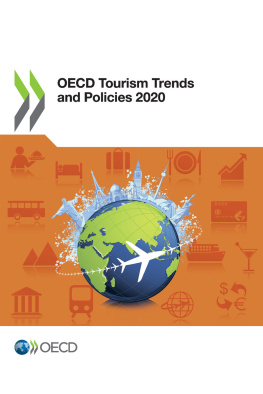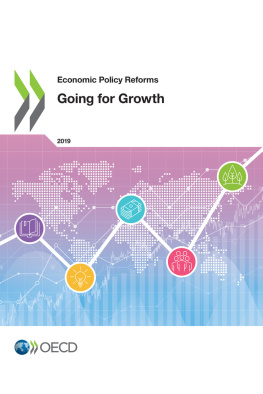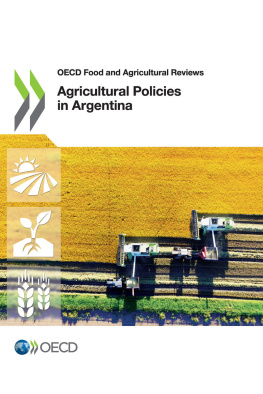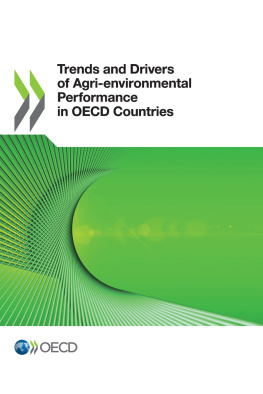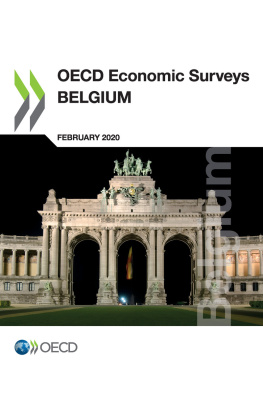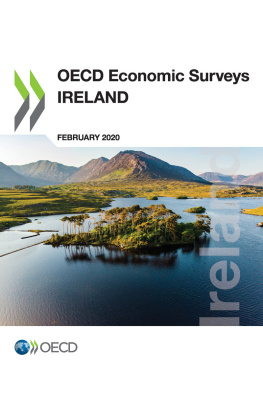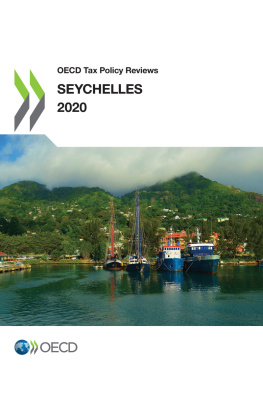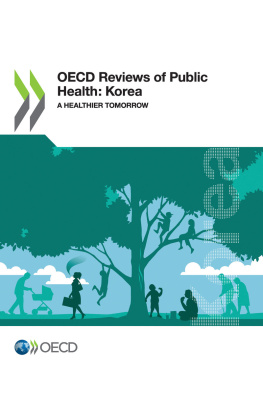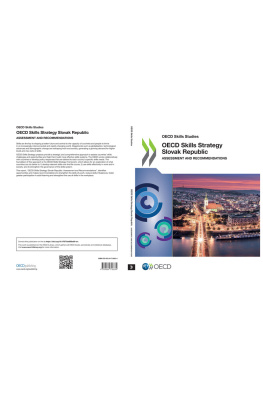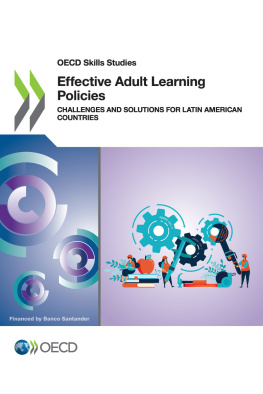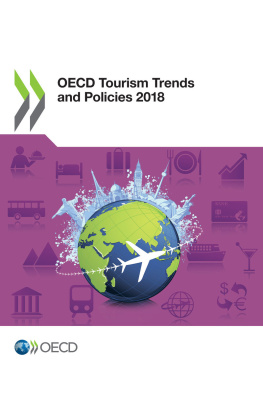OECD - OECD Tourism Trends and Policies 2020
Here you can read online OECD - OECD Tourism Trends and Policies 2020 full text of the book (entire story) in english for free. Download pdf and epub, get meaning, cover and reviews about this ebook. year: 2020, publisher: OECD Publishing, genre: Politics. Description of the work, (preface) as well as reviews are available. Best literature library LitArk.com created for fans of good reading and offers a wide selection of genres:
Romance novel
Science fiction
Adventure
Detective
Science
History
Home and family
Prose
Art
Politics
Computer
Non-fiction
Religion
Business
Children
Humor
Choose a favorite category and find really read worthwhile books. Enjoy immersion in the world of imagination, feel the emotions of the characters or learn something new for yourself, make an fascinating discovery.
OECD Tourism Trends and Policies 2020: summary, description and annotation
We offer to read an annotation, description, summary or preface (depends on what the author of the book "OECD Tourism Trends and Policies 2020" wrote himself). If you haven't found the necessary information about the book — write in the comments, we will try to find it.
OECD: author's other books
Who wrote OECD Tourism Trends and Policies 2020? Find out the surname, the name of the author of the book and a list of all author's works by series.
OECD Tourism Trends and Policies 2020 — read online for free the complete book (whole text) full work
Below is the text of the book, divided by pages. System saving the place of the last page read, allows you to conveniently read the book "OECD Tourism Trends and Policies 2020" online for free, without having to search again every time where you left off. Put a bookmark, and you can go to the page where you finished reading at any time.
Font size:
Interval:
Bookmark:
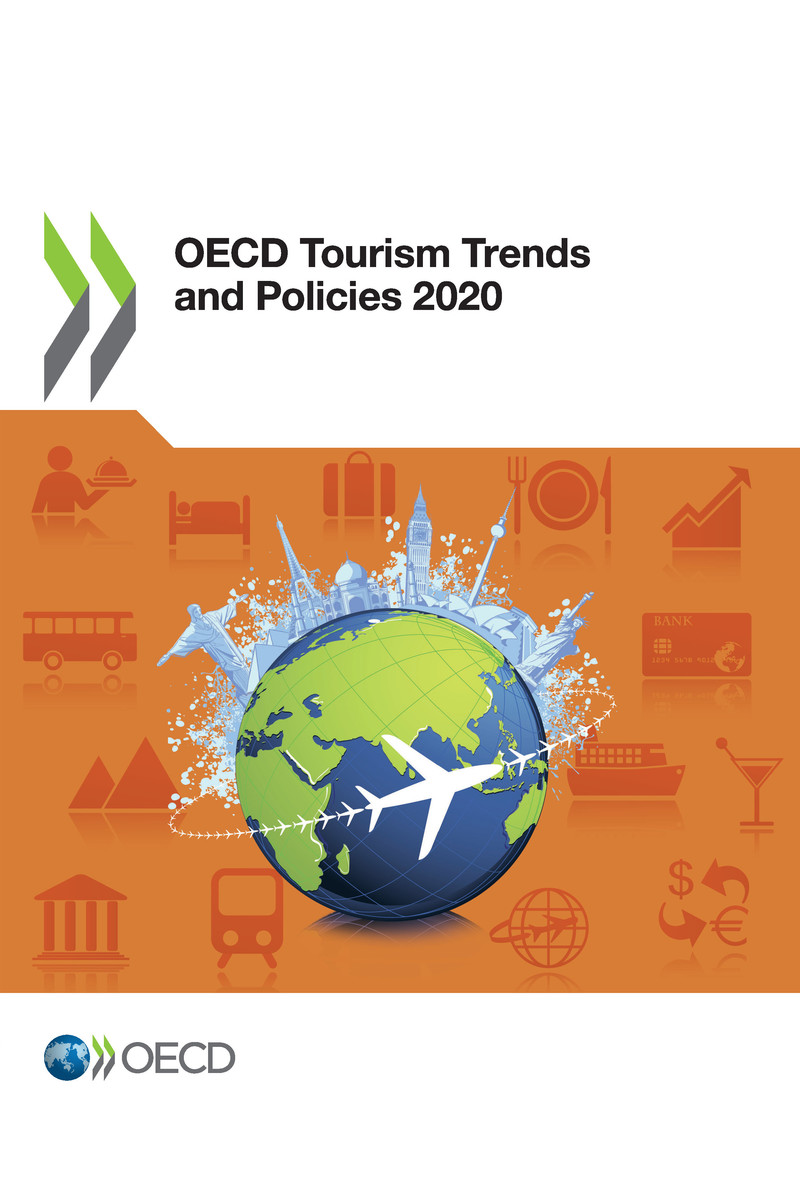
OECD (2020), OECD Tourism Trends and Policies 2020 , OECD Publishing, Paris, https://doi.org/10.1787/6b47b985-en .
The information in this document with reference to Cyprus relates to the southern part of the Island. There is no single authority representing both Turkish and Greek Cypriot people on the Island. Turkey recognises the Turkish Republic of Northern Cyprus (TRNC). Until a lasting and equitable solution is found within the context of the United Nations, Turkey shall preserve its position concerning the Cyprus issue.
The Republic of Cyprus is recognised by all members of the United Nations with the exception of Turkey. The information in this document relates to the area under the effective control of the Government of the Republic of Cyprus.
OECD Tourism Trends and Policies 2020 has become an international reference and benchmark on how effectively countries are supporting sustainable and inclusive tourism growth. The publication highlights good practices and key policy and governance reforms in tourism, providing a global perspective with the inclusion of 51 OECD member and partner countries. It is a rich source of data on domestic, inbound and outbound tourism, as well as on the overall size of the tourism economy, and highlights new policies designed to improve the sustainability and competitiveness of the sector.
Tourism is of vital economic, social and cultural importance in OECD member and partner countries, and provides real prospects for enduring and inclusive economic growth. It plays a key role in job creation, export revenue and domestic value added, and directly contributes, on average, 4.4% of GDP, 6.9% of employment and 21.5% of service related exports to OECD countries.
The global tourism economy has steadily expanded over the last six decades. While the short-term outlook for tourism is mixed due to an uncertain economic outlook and external shocks, over the long term the sector is likely to continue to grow and become an increasingly important element of OECD economies. Nevertheless, large-scale social, economic, political, environmental and technological trends continue to impact the sector and forward-looking public policies are needed to shape the development of sustainable and competitive tourism destinations.
The digital revolution is a prime example of a key driver of tourism growth that is having a profound effect on the sector, changing the way people travel and service delivery. Meanwhile, continued growth in visitor numbers raises important questions about how to best manage this growth to benefit all people, places and businesses, while mitigating adverse impacts on the environment.
OECD Tourism Trends and Policies 2020 provides an assessment of how digitalisation is transforming tourism business models and explores ways to support tourism SMEs to adapt to this digital transformation. The report also analyses the need to rethink tourism success for sustainable growth. In particular, it encourages policy makers to take steps to help destinations avoid potential pitfalls, as they strive to strike a balance between the benefits and costs associated with tourism development, and implement a sustainable vision for the future.
This flagship publication was produced by the Centre for Entrepreneurship, SMEs, Regions and Cities (CFE) of the OECD, with co-financing from the European Union. It was approved by the OECD Tourism Committee through written procedure in February 2020.
This report presents the 2020 edition of the OECD Tourism Trends and Policies publication. It was produced by the OECD Centre for Entrepreneurship, SMEs, Regions and Cities (CFE), led by Lamia Kamal-Chaoui, Director, as part of the programme of work of the OECD Tourism Committee. The report was undertaken in co-operation with the European Union.*
The report benefitted from significant contributions, feedback and guidance from policy makers and statisticians from OECD member countries and partner economies. It also benefitted from consultation and feedback from industry representatives and associations, and intergovernmental organisations, including Amadeus, the European Tourism Association (ETOA), International Air Transport Association (IATA), the Association of Hotels, Restaurants, Bars and Cafes Hospitality Europe (HOTREC), UN Educational, Scientific and Cultural Organization (UNESCO), UN Environment, UN World Tourism Organization (UNWTO), World Trade Organisation (WTO), and the International Labour Organization (ILO).
The report was co-ordinated and edited by Jane Stacey, Head of the Tourism Unit, under the supervision of Alain Dupeyras, Head of the Regional Development and Tourism Division, and with the support of Peter Haxton, Policy Analyst (CFE) and main author of chapter 3, as well as Angela Bernard, Policy Analyst (CFE), and Anna Bolengo, Consultant (CFE), who undertook substantial co-ordination, drafting and editing. Laetitia Reille, Statistician (CFE), managed the statistical database and developed country statistical profiles and synthesis tables. Monserrat Fonbonnat, Assistant (CFE), provided administrative support. Ayesha Noor Abinal, Trainee (CFE), provided research and co-ordination assistance. Pilar Philip and Franois Iglesias (both CFE) served as publication co-ordinators. The statistical component of the report is available via the OECDs statistical online platform OECD.Stat.
Chapter 1 and the country profiles were drafted by Richard Dickinson (Managing Director, Tomorrows Tourism ), and Chapter 2 was drafted by Dianne Dredge (Founder, The Tourism CoLab and Professor at Lund University, Sweden), with significant inputs from the Secretariat. Lorenzo Zurulia (University of Bologna, Italy) and Albert Postma (NHL Stenden University, Netherlands) provided feedback on Chapter 2. In addition, the report benefitted from contributions and feedback provided by OECD colleagues in the Directorate for Science, Technology and Innovation (STI) and the Centre for Entrepreneurship, SMEs, Regions and Cities (CFE).
Font size:
Interval:
Bookmark:
Similar books «OECD Tourism Trends and Policies 2020»
Look at similar books to OECD Tourism Trends and Policies 2020. We have selected literature similar in name and meaning in the hope of providing readers with more options to find new, interesting, not yet read works.
Discussion, reviews of the book OECD Tourism Trends and Policies 2020 and just readers' own opinions. Leave your comments, write what you think about the work, its meaning or the main characters. Specify what exactly you liked and what you didn't like, and why you think so.

